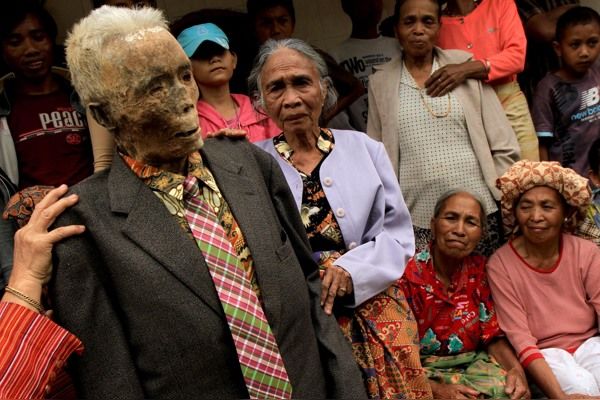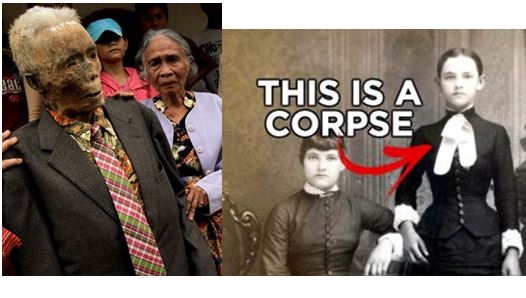4. Total Denial

In Tana Toraja in eastern Indonesia, funerals are not the some, black-clad affairs that we are used to, they are raucous parties that can last for weeks and families will have to save up for years and years to be able to afford to put it on.
Because of the often surprise nature of death, the period between a death and the lavish, expensive funeral becomes something of a limbo for the dead person. After death, but before burial, the deceased will be referred to as a person “who is sick” or someone who is “asleep” and the family will not yet acknowledge them as dead.
They will even get their own room in the house and the family will continue to feed, clothe, wash and care for their poor dead granny (more symbolically than if they were truly alive of course, it’s pretty difficult to actually feed a corpse).
They will remain a big part of the family’s life until they can finally afford to send them off in style with a big blow-out of a funeral.
The dead don’t get any peace once they are finally laid to rest though, as the people of Tana Toraja also have a practice similar to the Turnning of the Bones, during which the mummified remains are exhumed, washed, dressed and even walked around the village from time to time.





































Discussion about this post